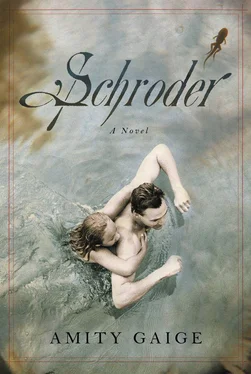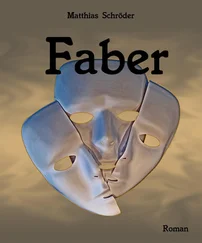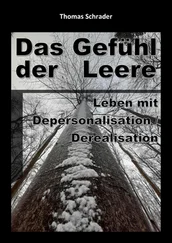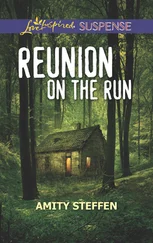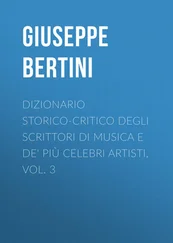The carousel. Who doesn’t have one in his childhood, that universal symbol around which all cravings, fulfilled and unfulfilled, seem to circle magnetically forever? They even had one, if you can believe it, in the middle of Treptower Park in East Berlin, circa 1974. And even though life in Berlin was unique, the children weren’t. That is, a child in Berlin tallied the same pleasures as you did: how many rides he was permitted, who was watching and with what expressions, what to call this feeling of going up and down and around simultaneously and whether or not to enjoy it, what the child beside him was doing or not doing, who was crying and how sincerely, how the music sounded, sad or happy, or too tightly wound, maniacal; he tallied it all, especially what was done post-carousel, everything made special and weird by the motion, by a sense of having traveled. Like any child, the child in East Berlin thought about the carousel late that night in bed. His musings were double-edged; by remembering the carousel he felt he “kept” or “possessed” the carousel, and yet he understood that the carousel was not a thing, like a balloon or a toy, and could not be possessed. He noted preciously that the next time he rode the carousel — if he was so lucky, if his Mutter would take him there again — would not be like the time he rode it today. Also, he was starting to see that there was a difference between secrets and mysteries, and life was — unluckily for him — a mystery, not a secret, which meant nobody owned it, and therefore nobody could make it transparent for him, and nobody’s death would yield the answer to it, and maybe he even understood that from there on in, whenever he looked at a carousel, no matter how old he’d grown, no matter how gray, he would never be able to comprehend the riddle of how it made him feel.
Around and around the carousel went, the frozen horses jumping.
Grief is a carousel.
Guilt is a carousel.
Life is a carousel.
No — history is a carousel.
No, no. Memory.
Memory is a carousel.

One of the pieces of advice offered to parents in extremely contentious custody cases is confiscation of the children’s passports. If there is any worry on the part of one spouse that the other spouse is at risk for flight with a child — that is, kidnapping (there, I said it) — the concerned spouse should request that the courts hold that child’s passport. However, parents should understand a) that the United States has no exit controls — in other words, any of us can shamble in or out at any time we take a fit, and b) that there is no way to track or revoke a passport once it has been issued.
This is where things get murky.
I mean, where the unconscious mind enters. Mine.
Emboldened, I guess, by the damning child custody evaluation, your side appealed the custody arrangement with new allegations that I was a danger to my own daughter, stipulating that these charges would not be dropped until I submitted to psychological testing. In the meantime, your lawyer informed Thron that she was making a motion to restructure the custody agreement to be less, not more, collaborative. Their proposal, The Opposition warned us, was that I be forbidden under any circumstance to spend unsupervised time with Meadow. Visits between us would be monitored by a state-appointed chaperone. Never again, the lawyer vowed, would I be allowed to endanger the girl with my bizarre, neglectful parenting. Nor would I be allowed to speak with her privately. If I wanted to be with Meadow, I would have to do so under the supervision of someone from Child Services.
I responded to this development by imbibing such a quantity of Canadian Club that I woke up the following morning shirtless on the carpet, my face hot with midday sun. I looked around the bedroom in which I lay. Everything that was not nailed into the floor had been pushed over — I could only assume by me — the secondhand bedside table, the bookshelf, and even the old, gothic wardrobe that I had taken from our Pine Hills apartment, claiming it as a Kennedy heirloom. As I tried to lift this wardrobe back onto its feet, something slipped out from between the wardrobe and its pasteboard backing and fell to the floor at my feet.
Now, even though I had erased any sort of paper trail of my life before I became a Kennedy, I had not, by necessity, destroyed my German passport. I was not an American citizen, so the German passport would have to do in the event of emergency international travel, which I’d easily avoided. I’d hidden the booklet inside this wardrobe who knows how many years ago. Now it lay open suggestively on the floor. I rubbed my eyes and leaned down to peer at it. There I was, a decade younger, an unmarried man of twenty-eight. My skin was taut, my stare a little icy. I barely recognized the face.
The name?
Well, everyone knows it by now.
Schroder.
Erik Schroder.
No, no. Schroder . Try to pronounce the r as a guttural. Really get in there.
Schgroder. That’s it.
Where’s the umlaut? Relinquished. Before we left Germany, Dad had been forewarned by somebody or other that Americans didn’t believe in umlauts, and that no one in the United States used surnames anyway, but rather greeted each other by saying, Halloo, Guy! And since my father barely assimilated in the eight years in which I lived with him in Boston, I would count the umlaut as Dad’s single concession to America, a change he noted to each of his auditors in 1979 as we processed from queue to queue at Logan International.
He had planned to naturalize us, my father. But he never did. We remained resident aliens. Therefore, we lived with the low-level paranoia of people vulnerable to deportation. We drove slow, never jaywalked, carried no debt, and avoided the giving and getting of favors, basically alienating ourselves from the rites of Boston brotherhood. A stickler for rules, however much he resented them, Dad even made me carry my permanent resident card with me at all times, as he carried his.
I didn’t get it. My father spoke venomously about Germany. He said he didn’t care what people said against him or against Germans because nobody hated Germany or Germans more than he did. No greater country had ever ficked itself so thoroughly as Germany. He had surrendered our umlaut. Didn’t that just about sum it up? One day when I was in high school, I actually went and got naturalization forms for both of us and brought them home. I had been astonished to learn that on Part 1 (D) on Form N-400, the applicant is asked if he would like to legally change his name upon naturalization. The possibility of this made my heart race, for I had a new name by then, and here was a chance to legitimize it. If I could just say it aloud. To him. To say, This is who I am now. This is what I call myself. I like who I’ve become . Standing beside the card table I used as a desk, my father reviewed the documents. He studied them for a long time. During that same interval, I realized that my quest for legitimacy was ridiculous. The difference between summer-me and Dorchester-me was so stark, the space between them so great, no mortal boy could oonch them closer. I would never be able to say my new name to my father. I couldn’t be both men to anyone. By the time my father replaced the applications on the card table, crossed his arms, and shook his head slowly, I was relieved.
“ Nein, Erik. Ich will das nicht .”
“You’re probably right,” I said.
“ Das Problem hat nichts damit zu tun, deutsch zu sein. Das Problem liegt mit den Staaten. Und daß es Staaten gibt .” 4
Читать дальше
